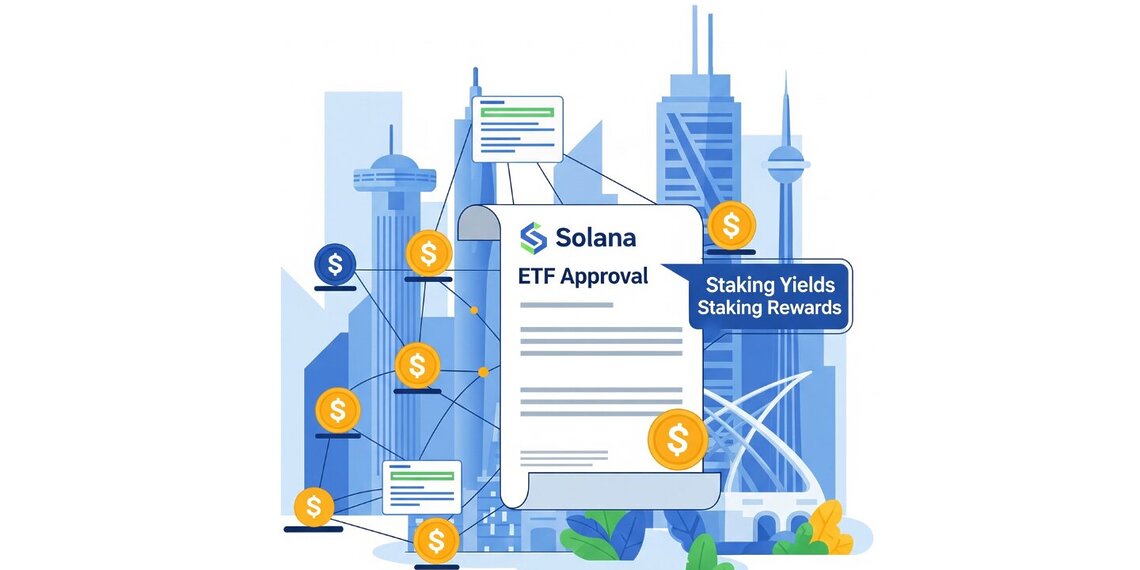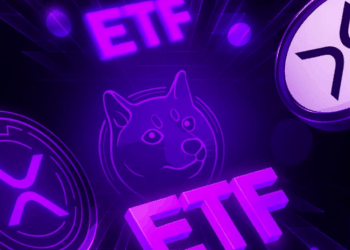The crypto industry is eagerly awaiting the US Securities and Exchange Commission’s decision on the approval of a spot Solana ETF or any other altcoin exchange-traded fund. As the sixth-largest cryptocurrency, Solana is at the center of speculation, with firms having resubmitted an amended S-1 filing to move forward with the launch of a spot SOL ETF. However, the key question remains, will staking be permitted?
The approval of a spot Solana Exchange-Traded Fund (ETF) in the US appears to be moving closer, with the key question now revolving around whether the SEC will permit staking within these funds.
Here’s a breakdown of the current situation
1. Solana ETF Approval Nears
- Filings are in: Seven prominent ETF hopefuls, including Fidelity, Grayscale, VanEck, Franklin Templeton, Bitwise, 21Shares, and Canary Capital, have filed or amended their S-1 registration statements with the U.S. Securities and Exchange Commission (SEC) for spot Solana ETFs on June 13, 2025. This flurry of activity signals significant progress.
- SEC engagement: The SEC has reportedly asked these issuers to update their S-1 filings, focusing on language around “in-kind redemptions” and, crucially, how staking would be handled. This direct engagement suggests the SEC is actively reviewing the applications and preparing for potential approvals.
- Positive outlook from analysts: Bloomberg ETF analysts James Seyffart and Eric Balchunas have raised the estimated odds of a Solana ETF approval in 2025 to as high as 90%. Some reports even suggest approval could come as early as July, or within the next two to four months.
- CME futures precedent: The listing of Solana futures on the CME (Chicago Mercantile Exchange) in February is generally seen as a positive indicator, though not a direct prerequisite, for spot ETF approval.
- Following Bitcoin and Ethereum: The SEC has already approved spot Bitcoin and Ethereum ETFs, and the industry is looking to these as precedents for other altcoins like Solana.
2. The Staking Question
- All filings include staking language: Notably, all the recent Solana ETF S-1 filings include language addressing staking. This indicates that issuers are keen to offer this feature to investors, as staking can generate additional yield on the underlying SOL assets.
- SEC’s evolving stance: The SEC’s willingness to even discuss staking in these S-1 filings marks a potential shift. Previously, for Ethereum ETFs, issuers had to remove references to staking to gain approval. This suggests a more flexible approach from the regulator under the current administration.
- Why staking matters: Staking is a core feature of Proof-of-Stake blockchains like Solana, allowing token holders to earn rewards for helping to secure the network. For an ETF, including staking could make the product more attractive to investors by offering an additional source of return, potentially offsetting management fees. Solana’s staking yield has historically been significant (e.g., exceeding 5% on Coinbase, though it varies).
- Regulatory hurdles for staking: Despite the apparent openness, there are still regulatory complexities. The SEC has previously raised concerns about whether funds offering staking rewards would qualify as “investment companies” under federal law. There’s also the question of whether staking rewards are considered “securities” and how they should be taxed.
- Simultaneous approval for Ether and Solana staking? Bloomberg analyst James Seyffart has speculated that the SEC could theoretically approve staking for both spot Ether and Solana ETFs at the same time.
Implications of Staking Approval
- Increased investor appeal: ETFs that offer staking would provide traditional investors with a convenient and regulated way to gain exposure to Solana and earn yield, potentially attracting significant capital into the ecosystem.
- Competitive advantage: Funds that can offer staking rewards would likely have a competitive edge over those that do not, as investors would be losing out on potential income by holding non-staked SOL.
- Further legitimization of crypto: Approval of staking in ETFs would further legitimize crypto assets within traditional finance, paving the way for more sophisticated crypto investment products.
While the approval of a spot Solana ETF seems highly probable in the coming months, the inclusion of staking remains a key point of discussion and negotiation between the SEC and the issuers. The outcome of this particular aspect will significantly impact the attractiveness and functionality of these new investment vehicles.










